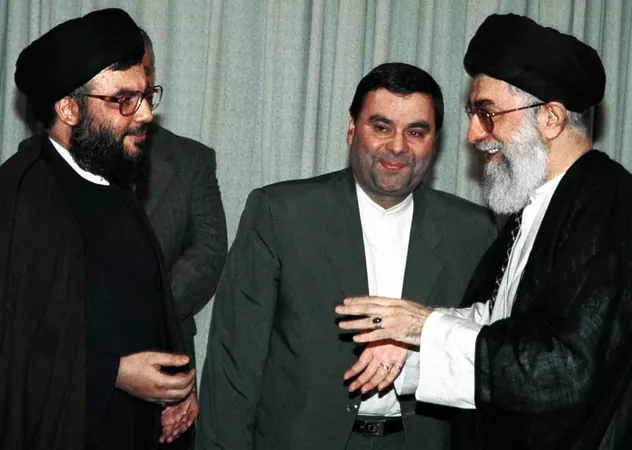
Khamenei Rallies Muslims Amidst Tensions Following Reported Assassination of Hezbollah Leader
2024-09-28
In a fervent call to unity, Iran's Supreme Leader Ayatollah Ali Khamenei condemned Israel as "criminal" following the reported assassination of Hassan Nasrallah, the leader of the Lebanese militant group Hezbollah, in an Israeli airstrike. This attack, which occurred on Friday, has significantly heightened tensions in the Middle East.
In a statement released on Saturday, Khamenei urged Muslims worldwide to "stand by the people of Lebanon and the proud Hezbollah." He criticized Israel's military actions as "short-sighted" and denounced its attacks on Lebanon as an act of "criminality." Khamenei emphasized that Israel could not achieve significant damage to Hezbollah's "solid structure," proclaiming, "The Zionist criminals need to know that they are far too weak."
While Khamenei did not explicitly mention Nasrallah's fate, Hezbollah later confirmed his death, marking a profound setback for Iran's influence in the region. Despite the gravity of the situation, Khamenei refrained from calling for immediate retaliation, suggesting instead that Israel would "regret its actions."
The Iranian leader stated, "The fate of this region will be determined by the forces of resistance, with Hezbollah at the forefront," indicating a confidence in the group's ability to rebound and possibly escalate resistance against Israel's military operations in the region.
Following these events, Khamenei convened an emergency security meeting to assess the implications of the airstrikes and Nasrallah's death. Analysts interpret Khamenei's statements as a manifestation of solidarity not only with Hezbollah but also in support of the broader Palestinian cause in its ongoing struggle against Israel.
According to Tohid Asadi, an expert in American studies at Tehran University, Khamenei’s message reflects a critical moment for Hezbollah and Iran, though he noted that no concrete plan had been established in response to these developments. The impact of these recent attacks has also drawn concern among analysts who describe the situation as tragic for both Hezbollah and Iran.
Despite the destruction wrought by the recent Israeli airstrikes, Iranian political analyst Mohammad Marandi asserted that Israel's military efforts have not effectively subdued Hezbollah. He suggested that Israel underestimates its adversary, stating, "I think Israel is underestimating what it is up against."
Marandi warned that the ongoing violence, which has seen hundreds of casualties daily, may incite widespread anger not just in Lebanon but across the Global South, leading to unforeseen consequences for Israel. He also noted, "Hezbollah has thousands of young commanders who have been trained and prepared for many years now," indicating a potential resurgence in Hezbollah's capabilities.
As this conflict evolves, the world watches closely. Will Israel face unexpected repercussions from its recent actions? Only time will tell as regional dynamics shift and the group rallies under a united front against perceived aggressions.


 Brasil (PT)
Brasil (PT)
 Canada (EN)
Canada (EN)
 Chile (ES)
Chile (ES)
 España (ES)
España (ES)
 France (FR)
France (FR)
 Hong Kong (EN)
Hong Kong (EN)
 Italia (IT)
Italia (IT)
 日本 (JA)
日本 (JA)
 Magyarország (HU)
Magyarország (HU)
 Norge (NO)
Norge (NO)
 Polska (PL)
Polska (PL)
 Schweiz (DE)
Schweiz (DE)
 Singapore (EN)
Singapore (EN)
 Sverige (SV)
Sverige (SV)
 Suomi (FI)
Suomi (FI)
 Türkiye (TR)
Türkiye (TR)